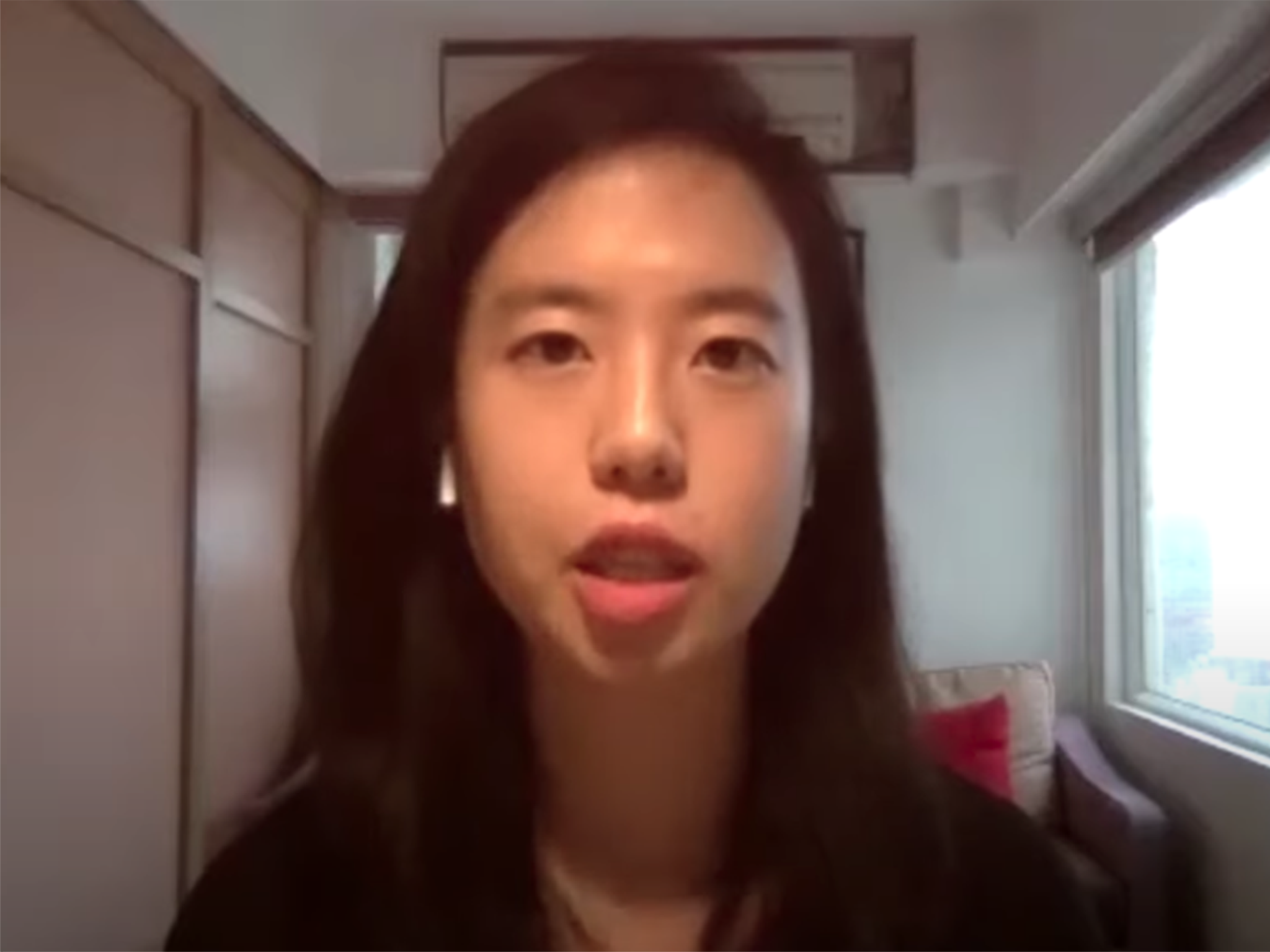Hong Kong denies visa to Economist journalist in latest blow to press freedom
‘I loved getting to know the city and its people. I will miss you all,’ writes The Economist’s Sue-Lin Wong

Your support helps us to tell the story
From reproductive rights to climate change to Big Tech, The Independent is on the ground when the story is developing. Whether it's investigating the financials of Elon Musk's pro-Trump PAC or producing our latest documentary, 'The A Word', which shines a light on the American women fighting for reproductive rights, we know how important it is to parse out the facts from the messaging.
At such a critical moment in US history, we need reporters on the ground. Your donation allows us to keep sending journalists to speak to both sides of the story.
The Independent is trusted by Americans across the entire political spectrum. And unlike many other quality news outlets, we choose not to lock Americans out of our reporting and analysis with paywalls. We believe quality journalism should be available to everyone, paid for by those who can afford it.
Your support makes all the difference.Hong Kong has refused to renew the visa of The Economist’s journalist Sue-Lin Wong, without providing any reason or explanation, in the latest crackdown on press freedom in China’s financial capital, the publication said on Saturday.
The Economist’s editor-in-chief Zanny Minton Beddoes issued a statement confirming that the Hong Kong immigration authorities have declined to renew the employment visa of their correspondent.
“We regret their decision, which was given without explanation. Sue-Lin is not currently in Hong Kong. We are proud of Sue-Lin’s journalism,” Minton Beddoes said.
The rejection of Ms Wong’s visa renewal request comes following fears of diminishing press freedom and the crushing of dissent in Hong Kong, once held up as a prime example of freedom of expression in the region.
Underlining the need for press freedom for Hong Kong to maintain its global status, the UK-based publication’s chief urged the government of Hong Kong to “maintain access for the foreign press, which is vital to the territory’s standing as an international city”.
Ms Wong, originally from Australia, was based in Hong Kong and covered China and the southern semi-autonomous city.
In a statement shared on Twitter, Wong said she was “very sad” at not being able to continue reporting from Hong Kong.
“I loved getting to know the city and its people. I will miss you all,” she said.
The Hong Kong administration and its immigration department have not commented on the matter.
The erosion of press freedom has dramatically accelerated since June 2020 when China passed a new national security law for Hong Kong, which resulted in the arrest of many democracy activists, as well as newspaper editors and journalists.
The outspoken pro-democracy publication Apple Daily was forced shut after its owner Jimmy Lai and key editors were arrested under the draconian security law.
The authorities in Hong Kong maintain that the law does not curtail the freedom of the media. Carrie Lam, chief executive of Hong Kong, has said that in spite of the changes being brought by Beijing, "freedom of expression, freedom of protest, freedom of journalism will stay”.
But many journalists are not convinced. A recent internal survey by the Hong Kong Foreign Correspondents’ Club revealed that nearly half its members were considering leaving the city amid tightening restrictions on their right to work.
Join our commenting forum
Join thought-provoking conversations, follow other Independent readers and see their replies
Comments